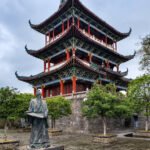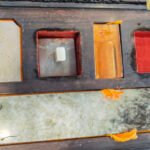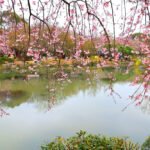Xiandu Temple, also known as Zhao Hou Temple or Zhao Hou Shrine, is one of the ancient temples in Xian Du, Jinyun. It is dedicated to Zhao Bing. Zhao Bing (1008 AD – ?), a man from the Han Dynasty, was proficient in magic and revered simplicity and cleanliness. He used water flowing eastward for sacrifices, stripped mulberry bark for offerings, transformed clear water into fine wine, and could carve any object into cooked meat. By filling a basin with clear water, one could see fish and dragons. When Zhao Bing traveled through Jinhua and Jinyun, the area was plagued by war and epidemics. Zhao Bing healed the people and saved many lives. To commemorate him, the locals built a temple here. After the Han Emperor learned of this, Zhao Bing was posthumously granted the title of General and Marquis of Wushang. The title Marquis of Wushang was due to Xian Du in Jinyun belonging to Wushang County at that time. In the caves of Zhaoyin and Shenyi, there are stone statues of eight divine physicians from ancient times to the present, blessing people with safety, health, and happiness.

Qinglong Rock: At the entrance of Zhao Hou Temple, there is a giant rock shaped like a dragon’s mouth, known as Qinglong Rock, facing Dadyuan Rock across the road. On the west side of the rock is the Tixun Cave, the site of the ancient Changting from the Qin and Han dynasties, and a necessary path from Taizhou to Jinhua. On the east side of the rock are the Shennong Cave and the Zhaoyin Cave. Behold, the dragon head, dragon eyes, dragon nose, and the misty dragon mouth are vividly layered. Ancient people believed in gods and would throw coins here to divine auspicious signs. One successful throw is considered great fortune, two successful throws mean wealth, and three successful throws mean safety.






